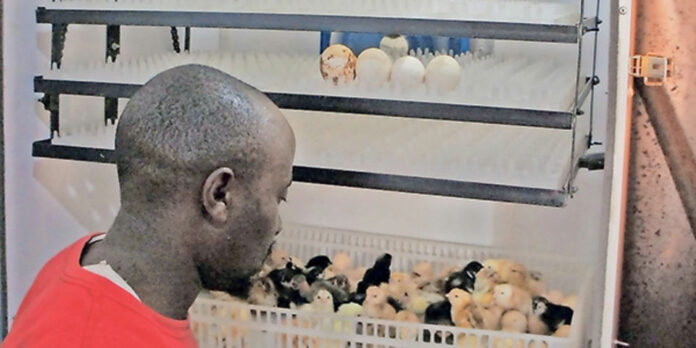Chicken Farming Capital: While at Mr Nicodemus Mbaluka’s one-acre farm in Wayani village, Kwale County, one cannot stop marvelling at the ease with which he handles his chickens.
Mr Mbaluka says he ventured into poultry farming after consulting his wife on what they could jointly do to earn an extra shilling.
They started the venture in 2012 when his wife took a Sh300,000 loan.
With the money Mr Mbaluka — the Kisauni Sub-County Teachers Service Commission director — built two mud-walled structures that could accommodate up to 300 hens.
Some of the money went into buying drugs, vaccines and feeds.
I am afraid of Omar Lali, Keroche boss Tabitha Karanja says
However, the two were careful enough not to exhaust the capital as they were greenhorns in the chicken farming business.
They bought the first batch of 350 one-day-old chicks from Sigma Feeds. One cost Sh90. And the rest, as they say, is history.
Some of the birds, Mr Mbaluka says, began laying eggs at only three and a half months, “defying the expected period of five to six months”. He and his family fed the birds day and night.
“We spent a lot of money on feeds but the results were satisfying. We got value for our money as the birds matured fast,” he says, adding that the family collected an average of 10 trays per day.
One tray sold for Sh270. After the necessary deductions on feeds, drugs and labour, the family made Sh1,000 daily.
Mr Mbaluka says the first batch of birds was healthy because he maintained high standards of hygiene. He also sought advice from experts.
After two years, the family did away with the flock. They sold one for Sh300 and made about Sh90,000.
“We disinfected the coops and let them remain unoccupied for three months before buying another batch of 500 chicks,” he says.
The family also used some of the money to build a permanent structure that would accommodate 500 birds.
However, it has not been all rosy for Mr Mbaluka. The more the flock expanded, the more difficult it became to manage it.
Trouble hit when he and his wife bought a fourth batch of 1,000 chicks from Kenchick. Determined to get even more eggs, they maintained the high hygienic standards and administered the necessary vaccines.
However, something awfully went wrong as he was administering a vaccine when the birds were two months old.
The chicks’ health deteriorated and 60 were dead on the second day. By the time things stabilised two weeks later, the family had lost about 800 birds and incurred a Sh300,000 loss.
“We did not know the vaccine had expired,” he said.
They picked up from there but still lost another batch of 800 chicks months later. This time, they had given the birds dirty water.
With lessons learnt, the family revived the business eight months later. He bought 500 layers.
He expanded the business by constructing more structures.
In 2016, he imported cages from China. He now has at least 800 chickens under the cage system and another 400 in the deep litter system. On average, Mr Mbaluka gets 25 trays of eggs daily. One tray goes for Sh330.
Chicken Farming Capital: This feature was first published in the Saturday Nation. The Saturday Nation is a publication of the Nation Media Group.









